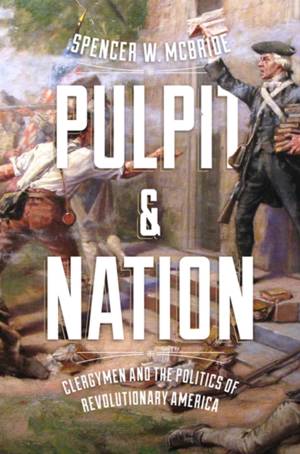
- Afhalen na 1 uur in een winkel met voorraad
- Gratis thuislevering in België vanaf € 30
- Ruim aanbod met 7 miljoen producten
- Afhalen na 1 uur in een winkel met voorraad
- Gratis thuislevering in België vanaf € 30
- Ruim aanbod met 7 miljoen producten
Omschrijving
In Pulpit and Nation, Spencer McBride highlights the importance of Protestant clergymen in early American political culture, elucidating the actual role of religion in the founding era. Beginning with colonial precedents for clerical involvement in politics and concluding with false rumors of Thomas Jefferson's conversion to Christianity in 1817, this book reveals the ways in which the clergy's political activism--and early Americans' general use of religious language and symbols in their political discourse--expanded and evolved to become an integral piece in the invention of an American national identity. Offering a fresh examination of some of the key junctures in the development of the American political system--the Revolution, the ratification debates of 1787-88, and the formation of political parties in the 1790s--McBride shows how religious arguments, sentiments, and motivations were subtly interwoven with political ones in the creation of the early American republic. Ultimately, Pulpit and Nation reveals that while religious expression was common in the political culture of the Revolutionary era, it was as much the calculated design of ambitious men seeking power as it was the natural outgrowth of a devoutly religious people.
Specificaties
Betrokkenen
- Auteur(s):
- Uitgeverij:
Inhoud
- Aantal bladzijden:
- 272
- Taal:
- Engels
- Reeks:
Eigenschappen
- Productcode (EAN):
- 9780813939568
- Verschijningsdatum:
- 12/01/2017
- Uitvoering:
- Hardcover
- Formaat:
- Genaaid
- Afmetingen:
- 164 mm x 240 mm
- Gewicht:
- 508 g

Alleen bij Standaard Boekhandel
Beoordelingen
We publiceren alleen reviews die voldoen aan de voorwaarden voor reviews. Bekijk onze voorwaarden voor reviews.











